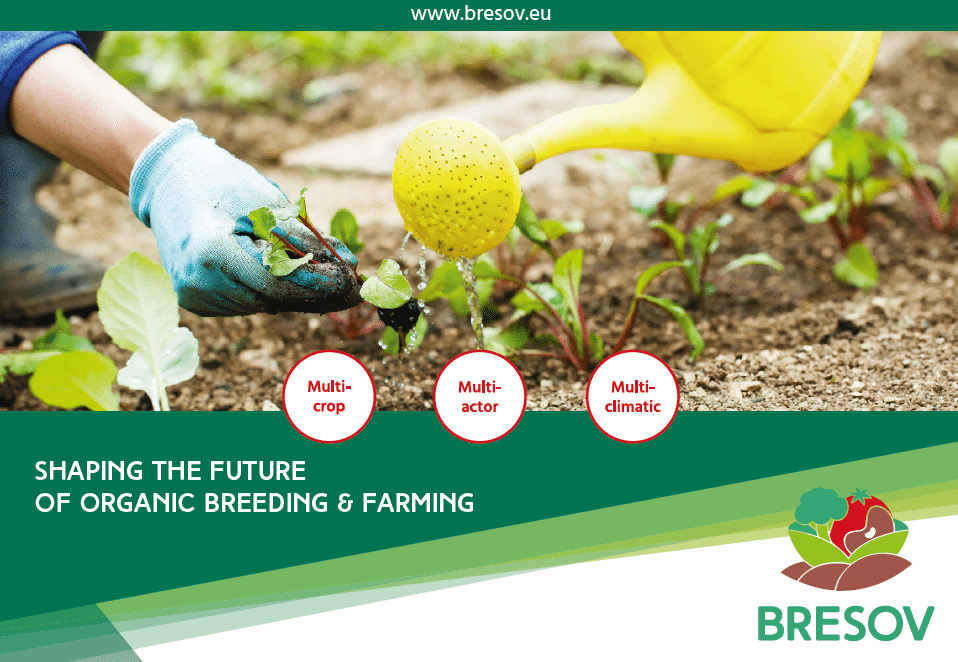Launch of 4-year EU research Project Bresov – The multidisciplinary project aims to link researchers, vegetable producers and consumers
The recently started European project BRESOV (“Breeding for Resilient, Efficient and Sustainable Organic Vegetable Production“) has set out to improve the competitiveness of three important vegetable crops (broccoli, snap bean and tomato) in an organic and sustainable environment. With a strong participation of stakeholders from the breeding and farming sector, the project aims to create a pipeline for crop improvement that will accelerate the production of high-quality organic seeds for breeders and farmers around the world.
With changing climatic conditions and a rapidly growing world population estimated to reach 9 billion by 2050, mankind faces the serious challenge of increasing food production by at least 70 %*. The vision of BRESOV is to tackle this challenge by exploring the genetic diversity of three of the economically most significant vegetable crops belonging to very important botanical families (Brassicaceae, Fabaceae, Solanaceae). The consortium’s overall aim is to increase the plants’ tolerance to biotic and abiotic stresses and adapt the varieties to the specific requirements of organic and low-input production processes.
To achieve their ambitious goals, the group will use modern techniques to explore the natural diversity within each crop and then use this to expand the breeding base to select and improve resilience traits in organic farming systems using annual crop rotation schemes. The new breeding lines will be tested for efficiency when grown under water, temperature and nitrogen stresses as well as for resistance to pests and diseases. In addition, desirable traits such as taste, visual appearance and post-harvest performance will be assessed.
“As the demand for organically produced staple food is growing constantly, we need to act now. The idea behind the BRESOV project is to better match research outcomes with producer and consumer demands” said Prof. Ferdinando Branca from the University of Catania, Italy, who coordinates the project. “Existing breeding material is predominantly optimised for conventional agriculture. Therefore, we aim to adapt and enhance genetic resources specifically for organic production to make it more competitive and attractive for farmers throughout and beyond the European Union.”
The 22 partner institutions from ten European countries as well as China, Tunisia and South Korea, pursue an interdisciplinary multi-actor approach placing special emphasis on the input and needs of the breeding and farming sector. The official kick-off of the project activities will be a first meeting held at the University of Catania, Italy, on June 25-27, 2018.
In the frame of this ambitious project, ESA is a direct member of the consortium and is involved in two main tasks: supporting the determination of the optimal agronomic conditions for organic seed production and leading the communication and dissemination work package.
BRESOV is funded with a total budget of € 5.96 million over the next four years by the European Commission’s current Research Framework Programme Horizon 2020. Another one million euros (in total) will come from the National Research Foundation of Korea (NRF) and the Chinese Ministry of Science and Technology (MOST).
*according to the World Resources Institute, http://www.wri.org
Source: ESA










